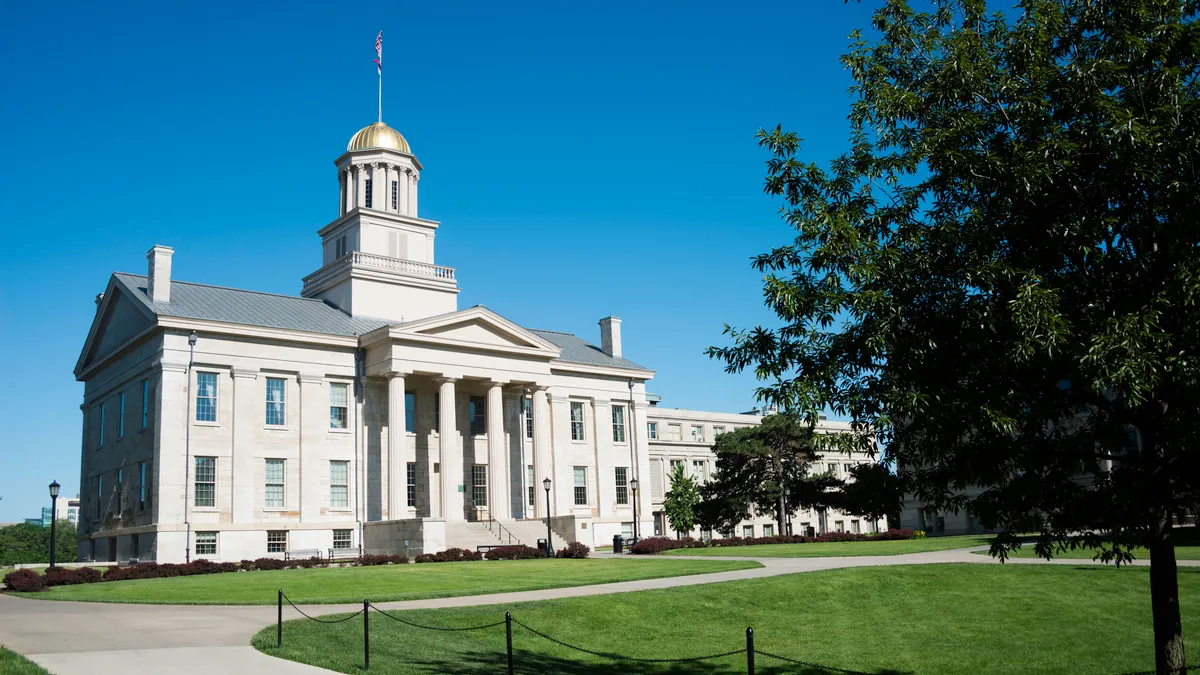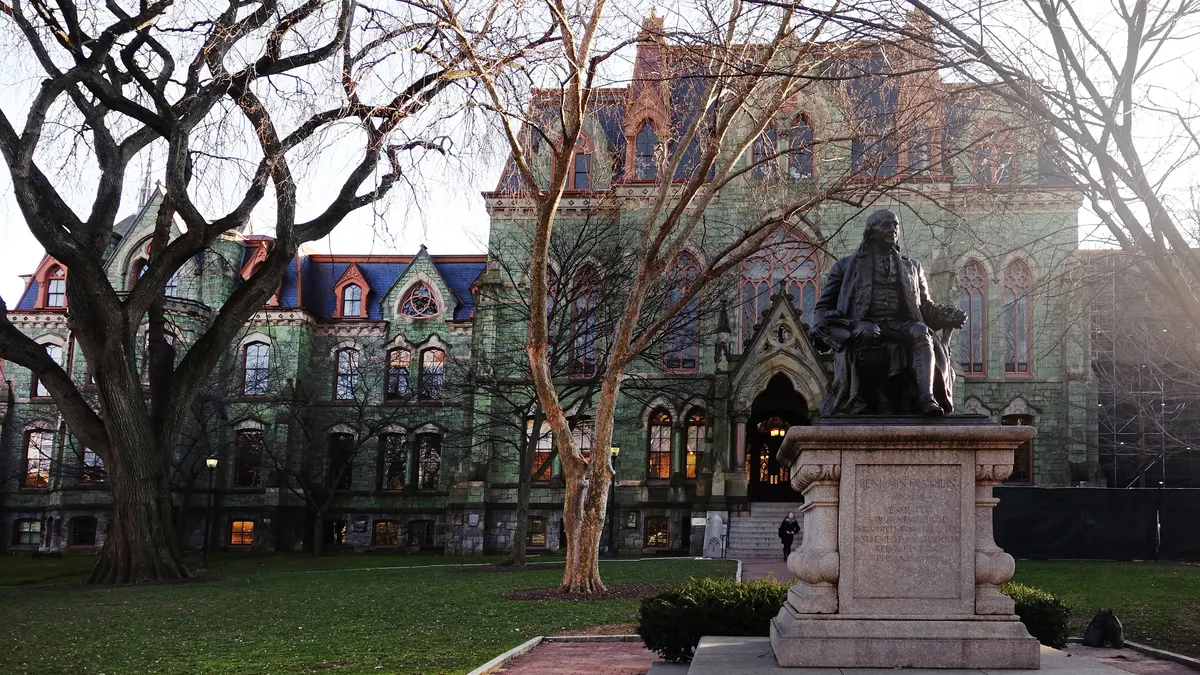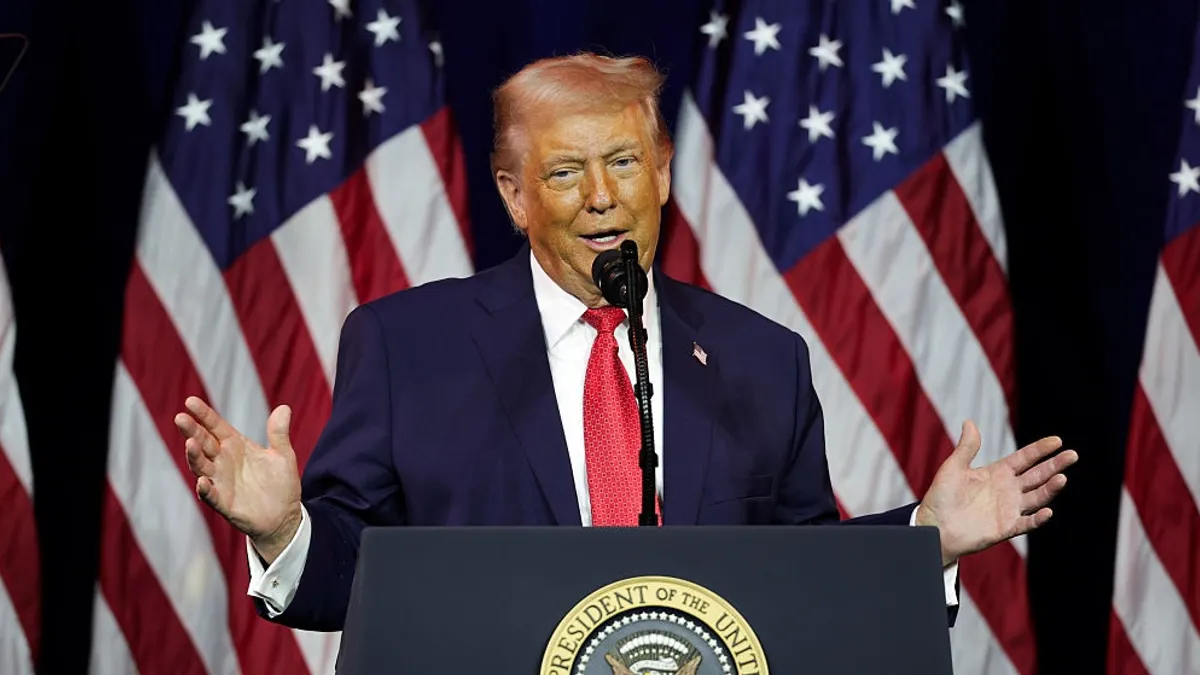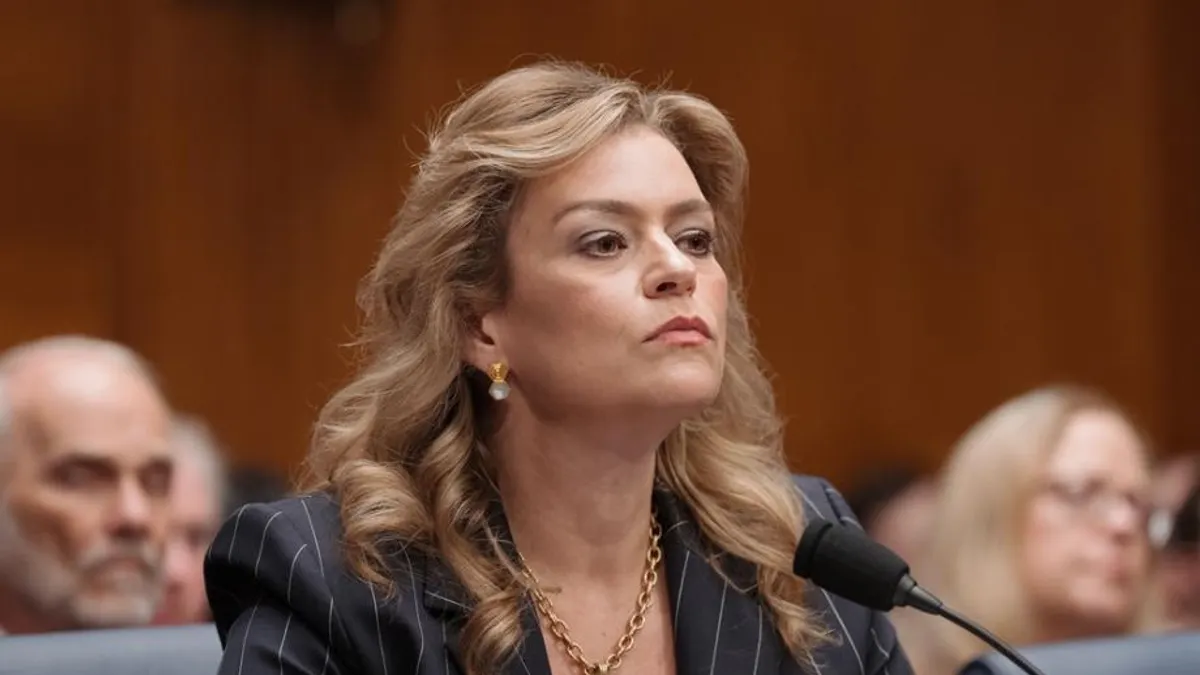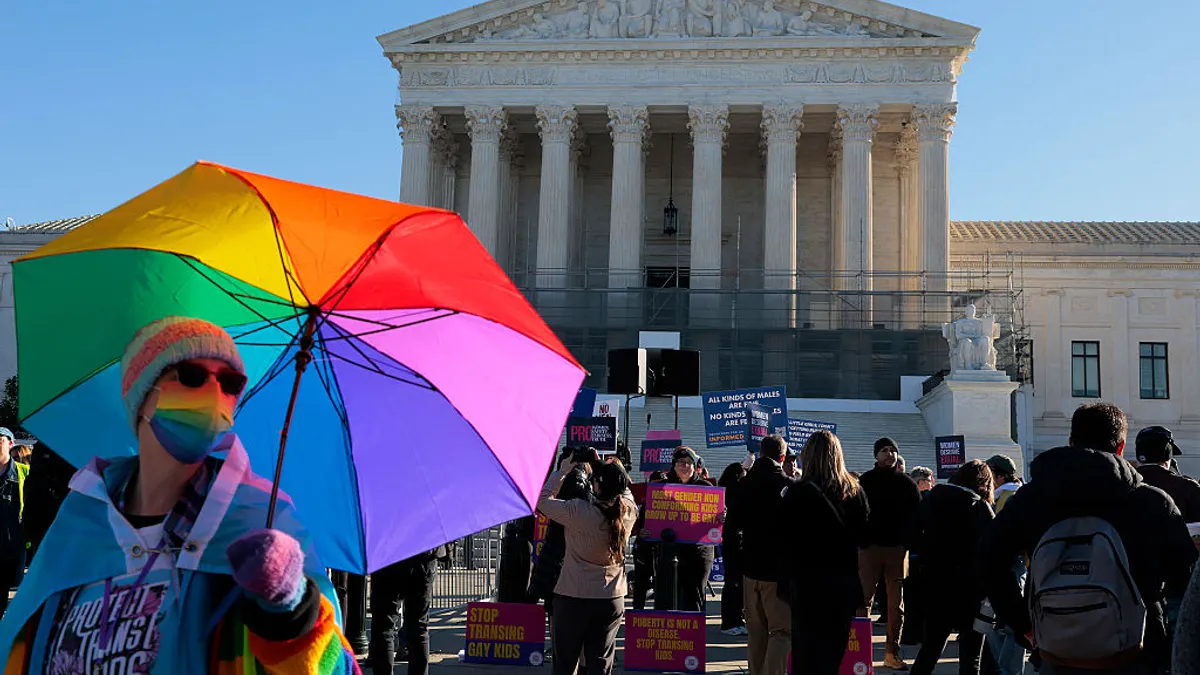The Iowa Board of Regents on Tuesday approved a policy change that requires public university faculty to “present coursework in a way that reflects the range of scholarly views and ongoing debate in the field."
Under the change, effective immediately, the board will also audit the three universities it oversees — the University of Iowa, Iowa State University and the University of Northern Iowa — at least every two years for compliance with the new directive.
The policy change significantly revises the original proposal's language, which included references to diversity, equity and inclusion and critical race theory. Tuesday's 7-1 vote came after public pushback over that proposal and two postponements by the board to approve the policy.
The initial version of the proposal would have barred Iowa university academic programs from requiring courses containing “substantial content that conveys DEI or CRT." As examples of DEI, it lists systemic oppression, anti-racism, social justice, and unconscious or implicit bias. Universities would have been able to apply to regents for exemptions.
The wide-reaching language prompted criticism from academic groups, students and those who argued it would undermine free speech.
In one example, five state educator groups launched a joint petition urging "the Iowa Board of Regents to firmly reject efforts to restrict what students can learn." The petition, which does not address the updated policy, noted that the original language would have affected at least a dozen academic programs.
"Students in certain fields — such as social work and nursing — would have been at a special disadvantage, since those professions’ standards require graduates to show competency in various topics banned under the policy," it said.
Board President Sherry Bates said the regents delayed the vote at their July meeting so they could review the policy. The board then set a special August meeting for the vote.
In the intervening weeks, the board released a new version of the proposal. The updated language — which ultimately passed Tuesday — states that “faculty may teach controversial subjects” when relevant to course content, but they must present such topics from multiple and opposing viewpoints.
“University teachers shall be entitled to academic freedom in the classroom in discussing the teachers’ course subject, but shall not introduce into the teaching controversial matters that have no relation to the subject,” the updated version says.
It also states that students’ grades should reflect their "mastery of course content and skills," not their "agreement or disagreement with particular viewpoints expressed during instruction or in their work."
‘What exactly is controversial, and who will decide?’
The new policy addresses how topics are taught rather than what is taught, Regent Robert Cramer argued.
"Personally, I don't want any of the DEI/CRT woke left stuff being taught in our classes," he said. "But this policy is not my personal beliefs.
But Regent Nancy Dunkel, the sole member of the board to vote against the policy, raised concern about the ambiguity of the policy’s language.
"What exactly is controversial, and who will decide? Can anyone declare something as controversial?" she asked. She also noted that the policy change in and of itself has become controversial among Iowa constituents.
Dunkel further raised questions about the requirement for faculty to present a range of viewpoints.
"If a professor has to present both sides to an issue, does that mean a marketing professor must also include anti-capitalist arguments to students?" she asked. "Do anti-evolution arguments have to be presented in biology classes? How do we present both sides of the Holocaust?"
The board voted immediately after Dunkel’s comments.
‘I will not be passive’
The regents also made clear to Iowa's three universities — the leaders of which joined Tuesday's meeting — that they have been put on notice regarding DEI efforts.
Two of Iowa’s public universities have become a talking point among conservative media outlets. In recent weeks, conservative outlets and anti-DEI watchdog groups published a series of videos — the most recent of which was released Sunday — that appear to show two officials at the University of Iowa and one at Iowa State discussing how they could work around state DEI restrictions.
In 2024, Iowa Gov. Kim Reynolds signed a law prohibiting its public universities from maintaining or funding DEI offices or from officially weighing in on a wide array of issues, such as systemic oppression, social justice, racial privilege or “any related formulation” of the listed topics.
At least two of the employees in the videos have been put on leave, and the state attorney general is now investigating the incidents.
Regent Christine Hensley voiced concerns over Iowa university employees looking to subvert the ban.
"There is an underground current of people within the various universities — a small minority, but they're the ones that are getting the attention — that are trying to go around the laws that have been passed," she said.
Bates said the board would audit an institution if it hears of "any instances of not following these policies."
"I will not be passive in addressing the problem," she said, adding that she would establish a task force of board members "to correct the situation and ensure compliance with the policy."
But some have defended the university employees.
The union representing the University of Iowa’s graduate workers lambasted their suspensions and investigations opened by administrators.
“They demonstrate a total capitulation to Governor Reynolds and the Trump administration at the expense of the quality and integrity of the education offered by the University of Iowa," the union said in an Aug. 6 statement. "This compliance with right-wing efforts to suppress civil rights and academic freedom, and deny basic principles of equal access to education, is a betrayal of our campus community and the values we hold as Iowa’s oldest and largest public university."


